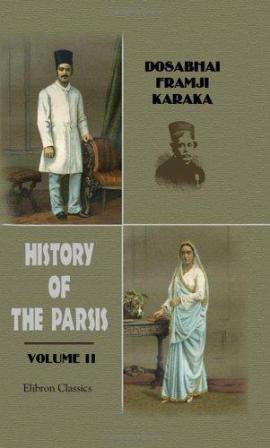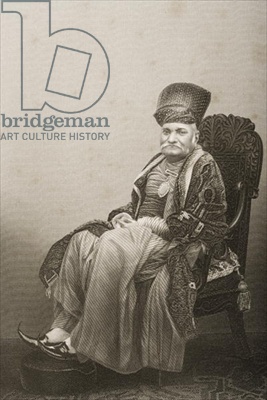A Parsi Perspective – excerpts from Dosabhai Framji Karaka’s book. Saturday, Mar 9 2013
Prior to and around the first Opium war, Parsi merchants monopolized trade in the Far East. As favored British Indian citizens, Parsis forged ahead establishing their businesses, in India and overseas. The perspective from inside in that time period is an unusual one and fortunately it does exist (in the English language) – though the book was written with the intent to highlight Parsis as epitome of business intelligence and benevolence. (Excerpts from the book, as related to China trade are outlined in the following paragraphs.)In his 1884 book ‘History of the Parsis’, author Dosabhai Framji Karaka states “It was the Eastern trade which brought the Parsis a mine of wealth. The Readymoneys, the Dadiseths, the Banajis, Sir Jamshedji Jijibhai the first baronet, the Kamas, and many others amassed their wealth in this trade.” According to Karaka after 1842, this monopoly encountered competition from other Indians including Khojas and Muslim merchants. Eventually, it was the Calcutta and Bombay Jews, the better educated business community that displaced the Parsi. ” While the Parsi merchants of China remained in the old groove, the Jews took better advantage of the new treaty ports in China and the opening up of trade on new lines of business. The extension of steam communication between India and China gradually extinguished the Parsi merchants’ service of sailing vessels, and last of all, when the civil war raged in the United States of America in 1862, the attention of the Parsis was to some extent diverted from their Chinese trade, by the greater attraction of the enormous profits in cotton trading with England.”

After the end of the American War however the ‘share mania’ in Bombay led to many Parsee businesses to bankruptcy. Many Chinese branches also suspended their businesses. “There are still, however, a few Parsi commercial establishments in Hongkong and Shanghai, but the Jews now enjoy the monopoly of the trade between India and China which formerly belonged to the Parsis.”
Prominent Parsis figure in the book including Sir Jamshedji Jijibhai. Karaka describes him as “the man who shed the greatest lustre on the Parsi race in India.” The book was written in 1884 (Sir Jamshedji died in 1859) and thus is not too much of a backward glance in time. Heavily laced with Parsi pride, at most junctures Karaka gushes about the philanthropic and benevolent Parsis who have changed the face of the territory they inhabited due to their sheer diligence and enterprising spirit.
At the young age of 16, Sir Jamshedji made his first voyage to China in 1799 and realized the business potential. Karaka makes available the translated letter(from Gujarati to English, written by Sir Jamshedji to his friend) the blow by blow account when Sir Jamshedji was captured by the French, on way to Madagascar (1806) on board the ‘Brunswick’ and his eventual release – a fascinating account. “Shrewd, sagacious, and observant, with a natural bent of mind for commercial pursuits, the experience that he acquired during his repeated visits to China, and the knowledge he possessed of the chief traders in that country, proved of incalculable value to him. This experience he brought to bear on the extensive transactions which he subsequently had with China, Europe, and other parts of the world.” Eulogizing, Karaka spares no adjectives in praise of Sir Jamshedji stating further ” If a stranger landed on the shores of Bombay and inquired what were the works by which Sir Jamshedji Jijibhai had acquired so much renown, it could not be long before he found them out.”
Congratulating Sir Jamshedji on his 1842 knighthood , Karaka singles out the significant accomplishments, munificence of the new baronet and the baronetcy patent is included in the appendix. Much of the book deals with the various distinguished members of the Parsi race before proceeding on to explain the history of Zoarastrianism , the various religious books and customs. The letters exchanged with Sir Jamshedji also are inserted to reflect the contribution of this opium merchant.
There is a mention of Grant Medical College, Bombay funded generously by Sr Jamshedji to provide deserving and needy students medical education in India. One Parsi who studied at this college slowly made his way to Shanghai, China and became a part of the Shanghai Masonic society. How, why and when – few answers and more questions remain on this interesting facet. More on this Shanghai Parsi soon.
Book link: http://openlibrary.org/works/OL2605774W/History_of_the_Parsis

No comments:
Post a Comment